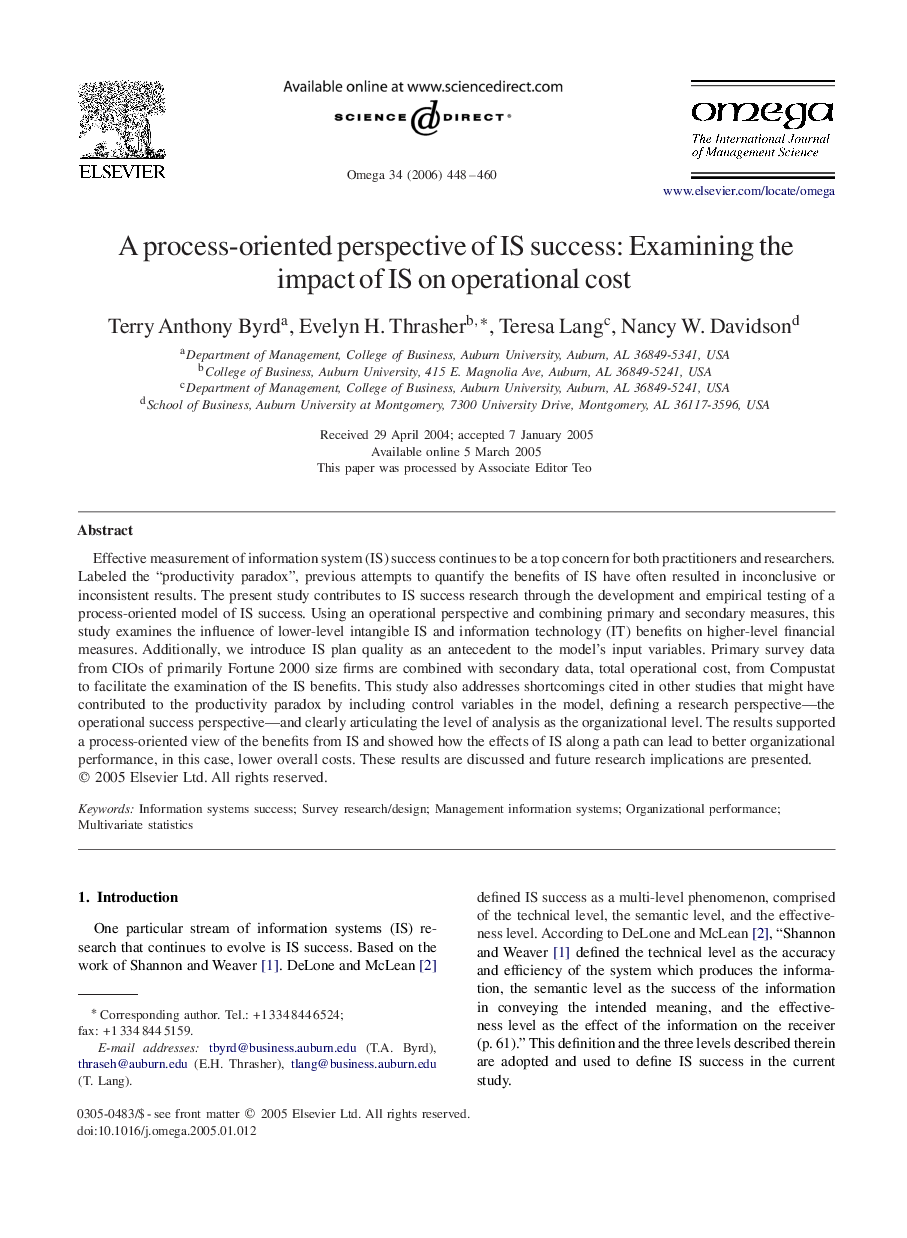| Article ID | Journal | Published Year | Pages | File Type |
|---|---|---|---|---|
| 1033181 | Omega | 2006 | 13 Pages |
Effective measurement of information system (IS) success continues to be a top concern for both practitioners and researchers. Labeled the “productivity paradox”, previous attempts to quantify the benefits of IS have often resulted in inconclusive or inconsistent results. The present study contributes to IS success research through the development and empirical testing of a process-oriented model of IS success. Using an operational perspective and combining primary and secondary measures, this study examines the influence of lower-level intangible IS and information technology (IT) benefits on higher-level financial measures. Additionally, we introduce IS plan quality as an antecedent to the model's input variables. Primary survey data from CIOs of primarily Fortune 2000 size firms are combined with secondary data, total operational cost, from Compustat to facilitate the examination of the IS benefits. This study also addresses shortcomings cited in other studies that might have contributed to the productivity paradox by including control variables in the model, defining a research perspective—the operational success perspective—and clearly articulating the level of analysis as the organizational level. The results supported a process-oriented view of the benefits from IS and showed how the effects of IS along a path can lead to better organizational performance, in this case, lower overall costs. These results are discussed and future research implications are presented.
